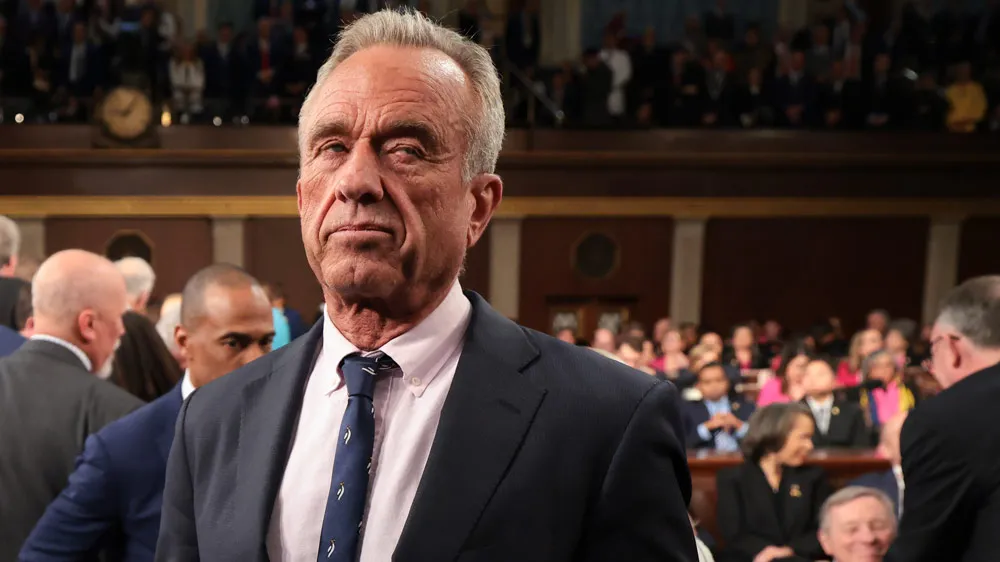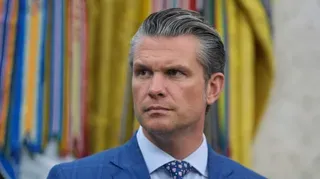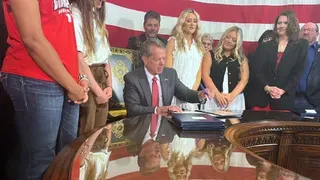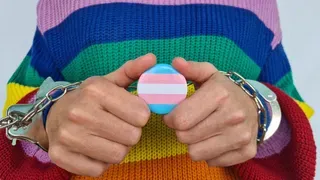November 12, 2017
Joney Harper: Advocate, Biker and An Intersex Person
Jerry Yelton READ TIME: 4 MIN.
Joney Harper's intersex self-discovery was born in North Carolina. And the road to finding that out was long and arduous as she traversed the landscape to becoming the person she was meant to be.
Harper was born in Pennsylvania and has lived in Arkansas, North Carolina and many other places throughout her life. During her career, she has worked in IT and she once served in the military. She has also been an LGBTQ advocate and activist.
Now, in her free time, she is a biker - riding her Harley-Davidson around to any and every place she can and exploring every place her bike can take her.
All of is this to say, Harper has done a lot in her 52 years.
In honor of the recent celebration of Intersex Awareness Day, Harper shared some stories with qnotes about her life, intersex awareness and some advice for new activists.
"I was born with a condition called chimerism - it's basically that I have two sets of chromosomes. I was my own twin, and the only issue is that I have XY/XX chromosomes. So that caused some 'abnormalities,' which is like one in a million births, but it runs in my favor." She added, "My great-grandfather was like me, XY/XX."
Harper shared these details about her intersex identity to underscore that her story is only one of many different possible stories that intersex people share. Current statistics estimate anywhere from 1 in 2,000 people are intersex, making up around 1.7 percent of the U.S. population and as common as the recessive red hair gene. "There are so many different variations," Harper said.
"A lot of us [in the intersex and transgender communities] go through gender identity issues, but you eventually through time accept yourself, which is the most important thing. Then other people will be able to accept you.
"I'm a hardcore biker," Harper said. "I go to hardcore biker places as a woman because I no longer care what people might think of me. It's their problem if they have a problem."
Harper also discussed meeting with local and statewide legislators and lobbying Sen. Jesse Helms. Helms represented North Carolina in the U.S. Senate from 1973 to 2003, and by the time Harper spoke with him, he had garnered a reputation as "Senator No" - notorious for voting conservatively on every bill in front of him.
"Me and a couple of other people from North Carolina went to Jesse Helms' office," she began. "A lot of people hide the facts about themselves in front of others, but here I was, a person explaining it to [them]. And [Helms] really focused on me because I was very open about [my experiences]. I wanted him to understand what the story was, and he got it. Not that he went out there and opened transgender legislation talks, but he got it. And what it took [was] talking with him and talking with others since."
Her experience in talking to lawmakers has given Harper an opportunity to impart knowledge about how to make an impact in her community. "My advice for people is actually to get out there...to remain calm and tell your story and tell as many people as you can." She told qnotes about the times in her life when information was kept from her about her intersex physiology and the pain that caused her. She expressed the need for people to be honest, open and willing to tell others about who they are and how they have lived their lives.
Harper embraces a continued optimism that conditions for LGBTQ people will improve despite the many hurdles left to face, including fears that the straight public might possess about those who are different from themselves. She believes legislation like Gov. Roy Cooper's executive order on workplace discrimination "is allowing people to get used to it." She continued by saying, "I think as that progresses, that will get more people open to us [and] that we are here." Harper added that fear is generated by people who think "they don't know us."
"What I've seen in the younger community is they are mostly getting out there, and they're full-speed ahead and damn the torpedoes." Harper continued with a quote from the film "Queen of the Damned." "Come out, come out, wherever you are," she laughed. "I think that's more important than hiding underneath the shadows.
"For years, they considered us the underground. TV shows and Emmys, and things like that did a great job of putting real gay people out there. Not that everything's totally accurate, but this shows what people go through."
Harper is enthusiastic about social progress and believes that telling one's story is exactly what will create passionate advocates. And, as she put it when she spoke to Sen. Helms or anyone else with whom she has come in contact, "allow people to get it."
To read more on Harper's life and story, visit goqnotes.com/48430.







